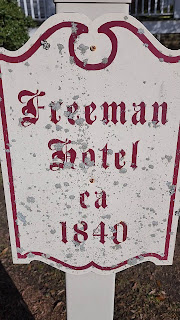Dijin
Djinn
Though in some Persian and Arabic beliefs, It is said you are born with a Dijinn. When you are born so are they and they stay with you for your whole life. A Qareen meaning constant companion is a spiritual double of a human, either part of the human themselves or a complementary creature in a parallel dimension. The Qareen is classified among the Jinn-type creatures, although usually not actually a Jin.
Dijin are neither good nor bad naturally just like humans, they make choices. They come in all different shapes and sizes not to mention temperament. Though Dijin are said to be mostly invisible they can change that at will. They are shapeshifters and can take the form of snakes, scorpions, lizards, etc, and even humans. In some beliefs, the Jinn even eat, sleep, procreate, and can even do so with humans. It is said some Djinn are fascinated with humans and will behave much like orishas. Djinn can also be spiritual devotees of any faith just as humans.
Rather you are dealing with a malevolent or benevolent djinn they live by a code of honor. If you disrespect, break a promise, or do wrong towards a Djinn watch out they have been known to not take kindly to such acts and either could seek revenge or even go as far as to possess the human host.
In pre-Islamic Arabia a Scholar by the name of Julius Wellhausen stated Dijinn are friendly and helpful the difference between the Dijinn and a God is that the Dijinn was worshipped in private whereas the Gods were worshiped in private and public.
If you look closely in some cultures you may see djinn on charms and talismans. Some believe they can be called upon for protection or magical aid, often under the leadership of a Djinn king (Chemharouch). Some Djinn are protectors whereas some just want to be left alone.
The Book of Wonders by Abd Al Hasan Al Isfahani from the 14th century shows illustrations of the 7 kings of Jinn, It is believed the Jinn serve a Jinn king. [108](p27)
In said book, each King is shown with his helpers and alongside a talisman symbol. For example, the Red King of Tuesday is shown astride a lion and holds a served head and sword, the reason be this king is aligned with Mars the God of war. [108](p27)
In Abrahamic beliefs, Lilith the first wife of Adam is mother to the Dijinn as well as many other "demons". It goes that when Lilith left Adam and the garden because he wanted to control her she mated with (who seems to change based on the source) satan/ Samuel and thus created the Dijinn.
Here is a chart pulled from pewresearch,org showing the % of that region believing in Dijnn.
You may be asking yourself where can I find or interact with a djinn. Well, they are nocturnal they enjoy ruins, cemeteries, crossroads you know the usual in-between places. Because of this, some believe you best not step on the thresh hold of your doorway.
Because Djinn love the heat when trying to make contact with a Jin work with the fire element perhaps even have a bonfire or a small devotional fire on your altar if that's not possible a candle will do.
Djinn don't like salt, iron, and steel so be sure to keep these far away when working with Djinn and off of their altar.
Don't be alarmed if you happen to have one lurking around your home if you have a child you read to. Djinn enjoy stories especially exciting ones and they will quietly observe and listen.
Generic offerings for Djinn include: pouring oil over flour, fruit jam, alcohol, candles, and incense. Be sure nothing has salt in it. Once you establish a connection to a djinn they will guide you on what they personally prefer.
- Jinn. (2023, June 14). In Wikipedia. https://en.wikipedia.org/wiki/Jinn
- Qareen. (2022, November 20). In Wikipedia. https://en.wikipedia.org/wiki/Qareen
- https://www.pewresearch.org/religion/2012/08/09/the-worlds-muslims-unity-and-diversity-4-other-beliefs-and-practices
- Encyclopedia of Spirits by Judika Illes






Comments
Post a Comment